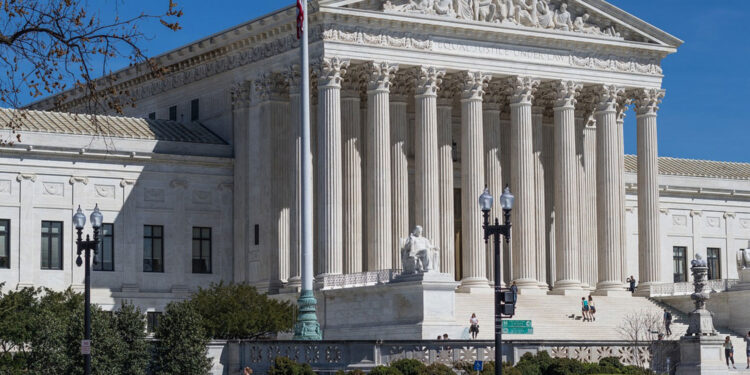The United States Supreme Court has recently made a significant ruling regarding Texas’s controversial immigration law, allowing the state to enforce it immediately. This decision has ignited a heated debate over the balance of power between federal and state authorities in immigration enforcement. The ruling comes at a time when the country is experiencing a surge in migrant arrivals at the southern border, adding fuel to an already contentious political landscape and prompting broader questions about the nation’s immigration policies.
The law in question, known as Senate Bill 4 (SB4), was passed by the Texas legislature in 2017 and has been a subject of legal and political controversy ever since. Among its provisions, SB4 allows local law enforcement officers to question the immigration status of people they detain or arrest, and it threatens sheriffs and police chiefs with jail time if they refuse to cooperate with federal immigration authorities.
The Supreme Court’s decision to uphold SB4 has drawn praise from supporters who argue that it is necessary to protect Texans and uphold the rule of law. They believe that states should have the right to enforce immigration laws within their borders, especially when the federal government fails to do so effectively.
On the other hand, critics of the law, including immigrant rights advocates and some legal experts, argue that it is unconstitutional and undermines the federal government’s authority to regulate immigration. They contend that SB4 will lead to racial profiling and discrimination against immigrants and people of color, eroding trust between law enforcement and immigrant communities.
The decision has broader implications beyond Texas, as it could embolden other states to enact similar laws, further complicating an already complex patchwork of immigration policies across the country. It also highlights the ongoing debate over the role of states in shaping immigration policy and the limits of federal authority in this arena.
The Supreme Court’s ruling is unlikely to be the final word on the matter, as legal challenges to SB4 are expected to continue. However, for now, Texas is free to implement its immigration law, setting the stage for potentially significant changes in how immigration is enforced at the state level.

















